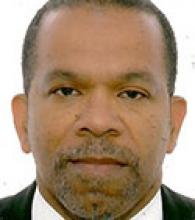Canada has conscientiously gained a worldwide reputation as a donor country to a variety of humanitarian and beneficial causes. Private enterprises like nongovernmental organizations, churches and charities, as well as government institutions, steadily strive to make a difference in a variety of acute human crises that demand action around the world.
The guiding principles that motivate such efforts are mostly aimed at identifying the validity and effectiveness of our Canadian foreign aid: What is the actual need? What is the impact of our foreign aid on the lives of communities and recipient countries? To what extent are others contributing to such causes? And, most important of all, are we making a difference?
All of these questions are fundamental and necessary, but they alone don’t guarantee our aid will achieve the intended consequences. An important factor usually overlooked is the correlation between the views of donors and the actual effectiveness of their contributions. People care more when they are better informed of the actual impact of their support.
For instance, on the public side, Canada’s foreign aid spending totalled $5.7 billion in 2012. This equates to about $165.30 per Canadian. Although a modest sum within the context of the world’s needs, we must ensure it is being used effectively. We must diligently aim to have our aid reach the greatest positive social impact it can.
The good news is that we can gain some insight on this issue, at least from the perspective of the end receivers. One of the most compelling self-criticisms of First World aid is presented in the lines of a worldwide study-report known as “Time to listen: Hearing people on the receiving end of international aid,” which captures the experiences and voices of more than 6,000 people who have received international assistance.
The authors observe that, despite stark geographical and socio-cultural differences, there is a striking similarity in people’s accounts of their interactions with the international aid system: “Their stories are powerful and full of lessons for those who care enough to listen and to hear the ways that people on the receiving side of aid suggest it can become more effective and accountable.”
For most traditional and new Canadians, it is the wisdom of the current government—and, more likely, the current administration—we rely on to be involved in the affairs of the world representing our collective priority.
As “Time to listen” reveals, a handy but neglected tool is at our disposal. The challenge is reachable but evasive: We need to listen! Are we, in fact, listening and truly interested in knowing the implications and potential impact that billions of dollars paid on our behalf are having in the current state of world affairs?
In a nutshell, the study discloses “how assistance begins as a boost to people’s spirits and energies, but, over time, becomes entrenched as an increasingly complicated system of reciprocated dependence.” It is within that mutually dependent trend that, quite often, donor agendas are in the driver’s seat in setting actual policies for the receiving world.
The balance between effectiveness and accountability is what has been missing out in most international scenarios receiving foreign aid. “Time to listen” discloses our biggest impediment to align our values with the necessary effectiveness to help transform present human crises in today’s world.
Take time to listen, please.
Noe Gonzalia is a Colombian pastor formed and trained in the Mennonite church. He moved to Canada with his family in 2000 and served for more than 10 years on the pastoral team at First Mennonite Church, Kitchener, Ont. He graduated this summer from the master of peace and conflict studies program at Conrad Grebel University College, Waterloo, Ont.
--Posted August 13, 2014




Add new comment
Canadian Mennonite invites comments and encourages constructive discussion about our content. Actual full names (first and last) are required. Comments are moderated and may be edited. They will not appear online until approved and will be posted during business hours. Some comments may be reproduced in print.